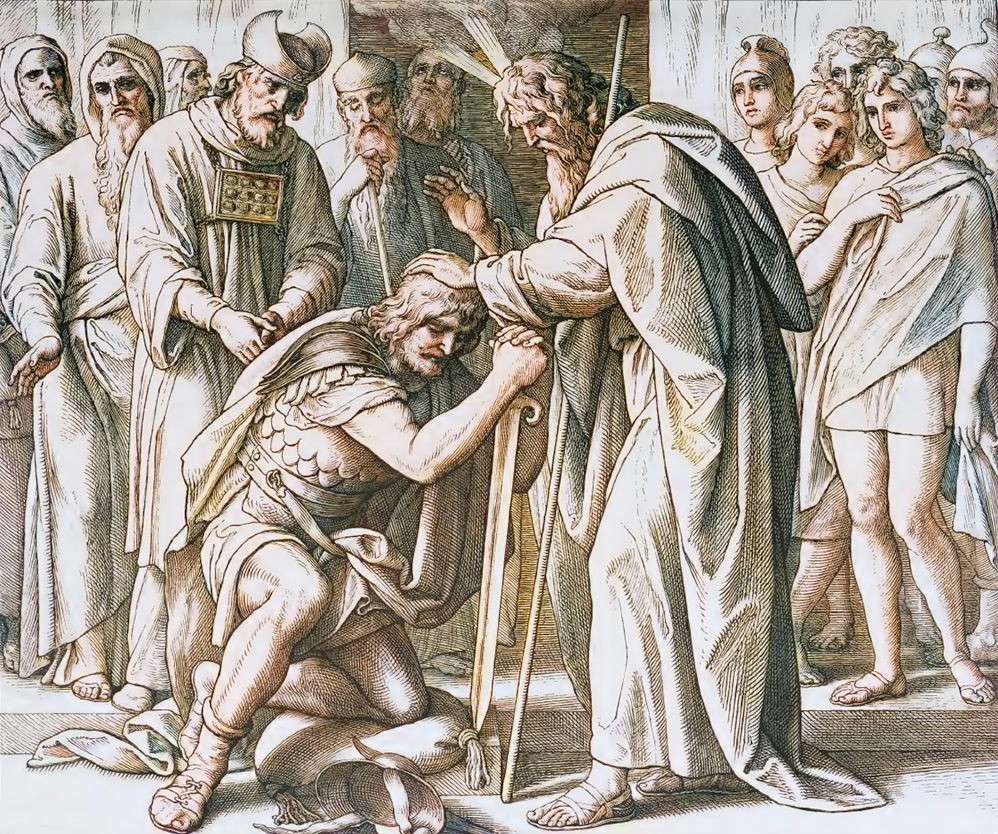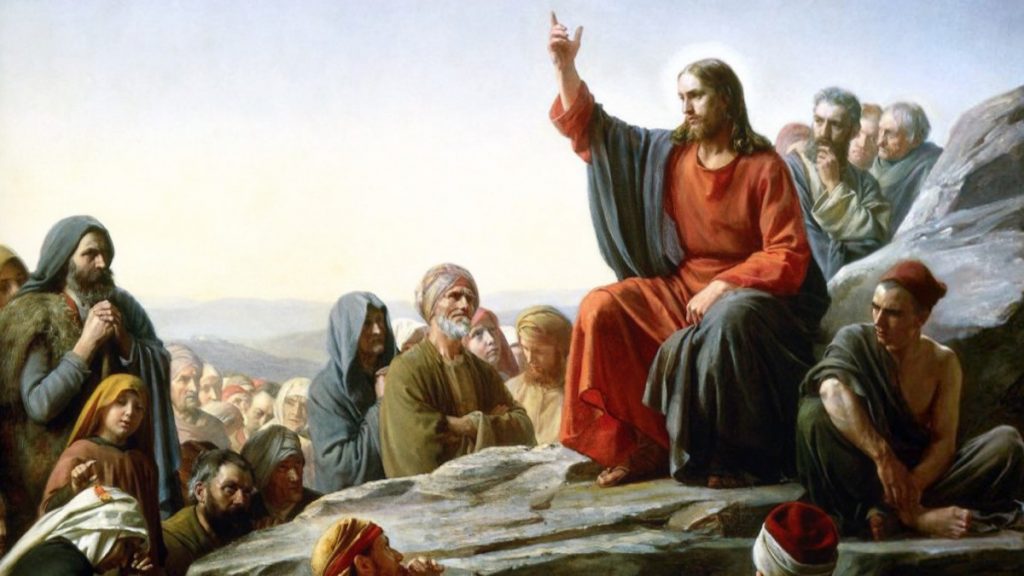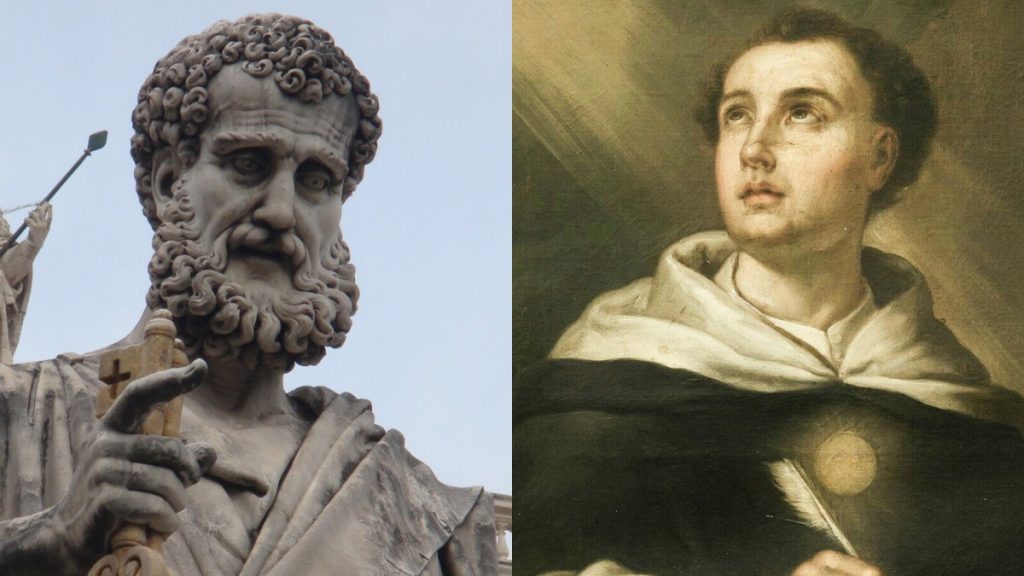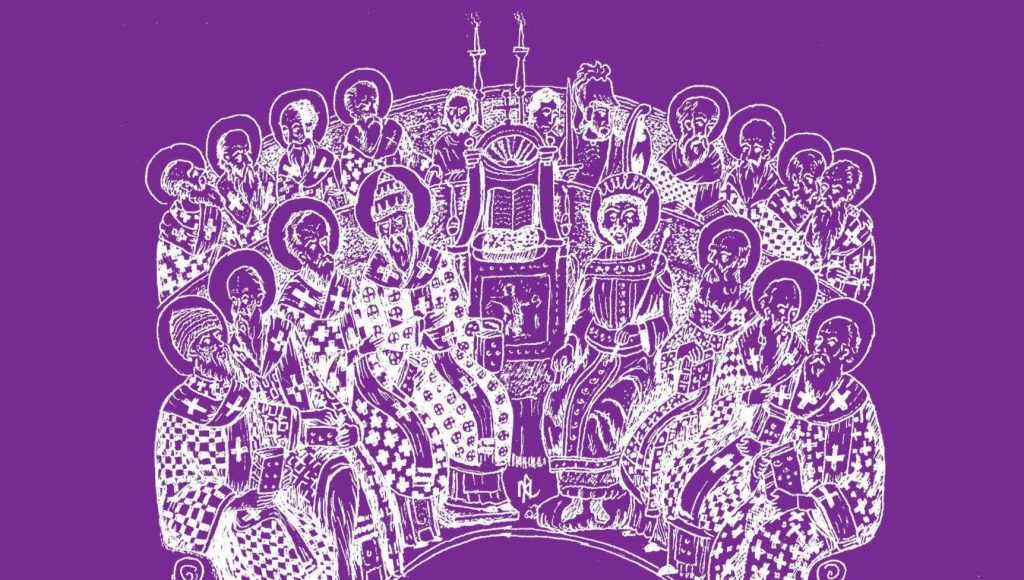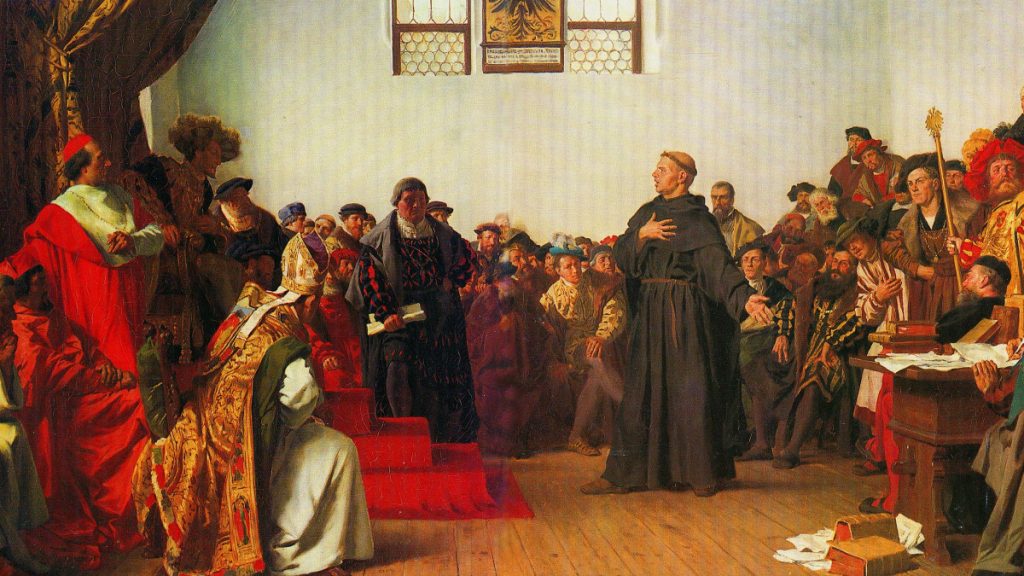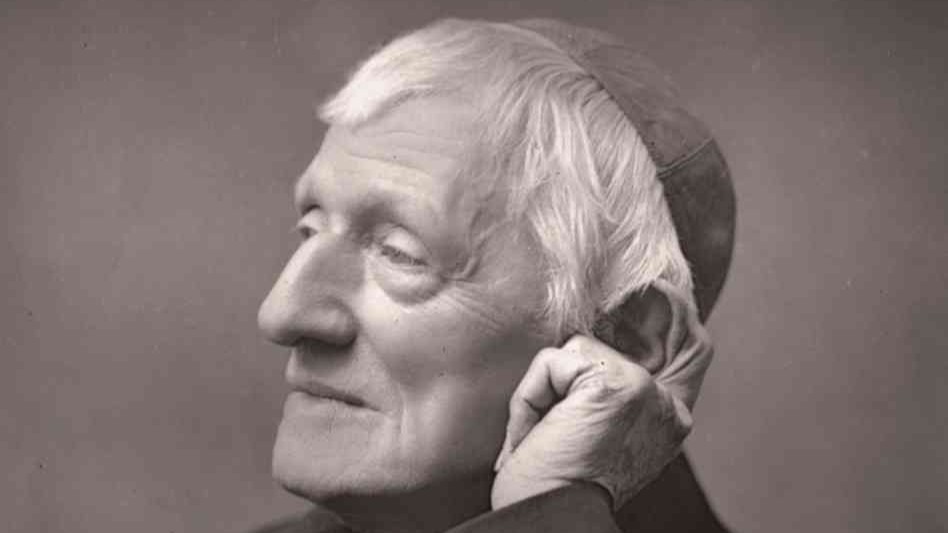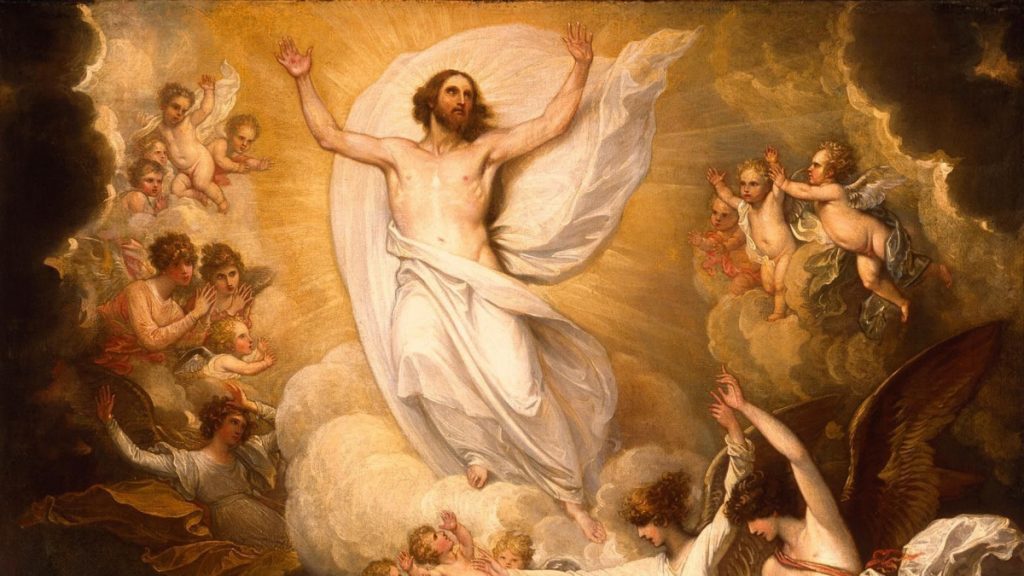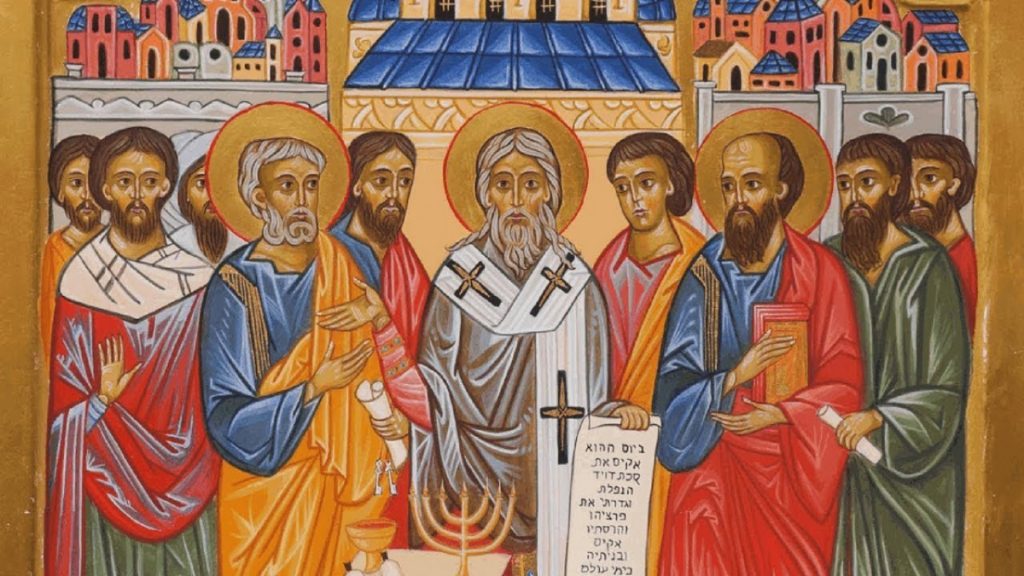Introduction
One of the distinctive doctrines of the Catholic Church is called Apostolic Succession.
Par. 74 of the Catechism of the Catholic Church (CCC) declares:
God “desires all men to be saved and to come to the knowledge of the truth” [1 Tim. 2:4]: that is, of Christ Jesus. [Cf. John 14:6] Christ must be proclaimed to all nations and individuals, so that this revelation may reach to the ends of the earth: “God graciously arranged that the things he had once revealed for the salvation of all peoples should remain in their entirety, throughout the ages, and be transmitted to all generations” (Dei Verbum 7; cf. 2 Cor. 1:20; 3:16-4:6)
In order to achieve this, Christ ensured that the Apostolic Tradition would be transmitted in its integrity through time through the Apostolic preaching (CCC 76), and Apostolic Succession (CCC 77):
“In order that the full and living Gospel might always be preserved in the Church the apostles left bishops as their successors. They gave them their own position of teaching authority” (Dei Verbum 7). Indeed, “the apostolic preaching, which is expressed in a special way in the inspired books, was to be preserved in a continuous line of succession until the end of time” (Dei Verbum 8).
In sum, Apostolic Succession is the doctrine that the bishops have succeeded the Apostles in their governing, teaching, and sanctifying office over the Church.
As a protestant, I was told this doctrine was unbiblical. But as I explored the Catholic Church, I realized the Catholic case for Apostolic Succession was not only incredibly strong from the historical testimony of the ancient Church, but the Bible itself, especially the Old Testament.
In short, I realized that succession was a firmly established principle at the time of the New Testament. Therefore, it was incumbent on those who denied this principle to prove it had been explicitly disavowed.
Here is what I mean by “the principle of succession”: the transfer of the same or similar authority from one person to another. The purpose of succession is simple: to maintain the governance of God’s people through time. Why? Because people die. Therefore, others must succeed their office/function in the government of God’s people.
This principle of succession is present throughout the Old Testament, specifically with respect to the priesthood, prophets, tribal heads, judges, and the kings. This principle of succession is also confirmed by extra-biblical Jewish sources.
Roadmap
With that background in mind, our Roadmap is as follows:
- Our thesis is that the New Testament reality of Apostolic Succession is rooted in the many different forms of succession we see in the Old Testament. Succession of leadership was, in fact, everywhere, and thus the default of the New Testament as well. We will show this by:
- Examining the principle of succession in the Aaronic priesthood; then
- Examining the principle of succession among some of the prophets; then
- Examining the principle of succession among the heads of Israel’s tribes; then
- Examining the principle of succession among the Judges–first Joshua succeeding from Moses, and then the Judges who followed after him; then
- Examining the principle of succession among the Kings; followed by
- Exploring the biblical confirmation of the principle of succession in the Torah itself; and then
- A summary of the conclusions this evidence leads to.
Priesthood: Successors of Aaron and His Sons
The Old Covenant priesthood was to be carried out by the tribe of Levi. The inaugural High Priest was Moses’s brother, Aaron. His sons would serve as priests beneath him, and the other sons of the tribe of Levi would serve as “Levites”—essentially, assistants with the tabernacle’s furniture, accoutrements, etc.
The first mention of Aaron and his sons serving as priests for the tabernacle (and later the Temple) comes after Israel has departed from Egypt (Ex. 27:21):
21 In the tent of meeting, outside the veil which is before the testimony, Aaron and his sons shall tend it from evening to morning before the Lord. It shall be a statute for ever to be observed throughout their generations by the people of Israel.
The priestly garments are described necessary for Aaron and his sons to continually serve as priests (Ex. 28:1, 4):
“Then bring near to you Aaron your brother, and his sons with him, from among the people of Israel, to serve me as priests—Aaron and Aaron’s sons, Nadab and Abihu, Eleazar and Ithamar…4 These are the garments which they shall make: a breastpiece, an ephod, a robe, a coat of checker work, a turban, and a girdle; they shall make holy garments for Aaron your brother and his sons to serve me as priests.
Likewise, the sons of Levi (Aaron’s tribe) proved loyal to the true religion after the Golden Calf incident, which Moses used as an occasion to reaffirm their priestly status (Ex. 32:25-26, 29):
25 And when Moses saw that the people had broken loose (for Aaron had let them break loose, to their shame among their enemies), 26 then Moses stood in the gate of the camp, and said, “Who is on the Lord’s side? Come to me.” And all the sons of Levi gathered themselves together to him…29 And Moses said, “Today you have ordained yourselves for the service of the Lord, each one at the cost of his son and of his brother, that he may bestow a blessing upon you this day.”
The ongoing role of Aaron and his sons as priests is reaffirmed in the book of Numbers (Num. 3:1-3):
These are the generations of Aaron and Moses at the time when the Lord spoke with Moses on Mount Sinai. 2 These are the names of the sons of Aaron: Nadab the first-born, and Abihu, Eleazar, and Ithamar; 3 these are the names of the sons of Aaron, the anointed priests, whom he ordained to minister in the priest’s office.
The book of Numbers also illustrates the principle of succession in the handing on of the office of High Priest from Aaron to his son Eleazar in the presence of Moses and the people of Israel (Num. 20:25-29):
25 Take Aaron and Eleazar his son, and bring them up to Mount Hor; 26 and strip Aaron of his garments, and put them upon Eleazar his son; and Aaron shall be gathered to his people, and shall die there.” 27 Moses did as the Lord commanded; and they went up Mount Hor in the sight of all the congregation. 28 And Moses stripped Aaron of his garments, and put them upon Eleazar his son; and Aaron died there on the top of the mountain. Then Moses and Eleazar came down from the mountain. 29 And when all the congregation saw that Aaron was dead, all the house of Israel wept for Aaron thirty days.
This ongoing succession of the Levitical priests is confirmed centuries after its institution (1 Chron. 6:48):
48 [A]nd their brethren the Levites were appointed for all the service of the tabernacle of the house of God.
Various genealogies of the High Priests of Israel show the importance of the principle of succession from the line of Aaron. See, for example, 1 Chron. 6:3-15, 50-53; 1 Chron. 9:10-11; Ezra 7:1-5; Neh. 11:10-11; etc. Scripture is also clear that the law of Moses was entrusted to the priests, which necessarily assumes a succession. See, for example, Deut. 31:9; 33:10; 2 Chron. 19:8-11; 31:4; and Mal. 2:7.
Prophets: Elisha Succeeds Elijah
We also see the principle of succession at work with some prophets. In particular, we see the prophet Elijah passing his authority and “spirit” to his successor, the prophet Elisha (2 Kings 2:9-10, 13-15):
9 When they had crossed, Elijah said to Elisha, “Ask what I shall do for you, before I am taken from you.” And Elisha said, “I pray you, let me inherit a double share of your spirit.” 10 And he said, “You have asked a hard thing; yet, if you see me as I am being taken from you, it shall be so for you; but if you do not see me, it shall not be so.”…13 And he took up the mantle of Elijah that had fallen from him, and went back and stood on the bank of the Jordan. 14 Then he took the mantle of Elijah that had fallen from him, and struck the water, saying, “Where is the Lord, the God of Elijah?” And when he had struck the water, the water was parted to the one side and to the other; and Elisha went over.
15 Now when the sons of the prophets who were at Jericho saw him over against them, they said, “The spirit of Elijah rests on Elisha.” And they came to meet him, and bowed to the ground before him.
Tribal Heads: Succession in Families
I also observed the principle of succession at work in the tribes of Israel. While the head of each tribe is not always explicitly named, Scripture on numerous occasions refers to “heads of the fathers’ houses,” or “heads of the tribes of the people of Israel,” or some combination thereof.
God was clear that His authority stood behind these leaders. For example, He says about tribal leaders (Deut. 1:13, 15):
Choose wise, understanding, and experienced men, according to your tribes, and I will appoint them as your heads…So I took the heads of your tribes, wise and experienced men, and set them as heads over you…”
Likewise, it was clear that the principle of succession applied to these offices as well. See, for example, Num. 13:3; 30:1; Deut. 5:23; Josh. 14:1; 1 Kings 8:1; etc. There are also numerous genealogies throughout the Old Testament that trace the line of each tribe and family, suggesting the importance of the principle of succession for each tribe. See, for example, 1 Chron. 1-9; Ezra 2; Neh. 7; etc.
Judges, Part 1: Joshua Succeeds Moses as the Leader of Israel
The principle of succession is also apparent when it comes to the Judges of Israel—those God raised up to fulfill Moses’ leadership function as described in Exodus (Ex. 18:13, 21-26):
13 On the morrow Moses sat to judge the people, and the people stood about Moses from morning till evening… [Jethro’s advice] 21 Moreover choose able men from all the people, such as fear God, men who are trustworthy and who hate a bribe; and place such men over the people as rulers of thousands, of hundreds, of fifties, and of tens. 22 And let them judge the people at all times; every great matter they shall bring to you, but any small matter they shall decide themselves; so it will be easier for you, and they will bear the burden with you. 23 If you do this, and God so commands you, then you will be able to endure, and all this people also will go to their place in peace.”
24 So Moses gave heed to the voice of his father-in-law and did all that he had said. 25 Moses chose able men out of all Israel, and made them heads over the people, rulers of thousands, of hundreds, of fifties, and of tens. 26 And they judged the people at all times; hard cases they brought to Moses, but any small matter they decided themselves.
But God did not intend for only that first generation of Israelites to benefit from the office of Judge. After all, what people can continue to exist who have no ordinary means to mediate the conflicts that will no doubt arise? Thus, God set in motion the process by which Moses’ function would pass down to others per the principle of succession (Num. 27:12-23):
12 The Lord said to Moses, “Go up into this mountain of Abarim, and see the land which I have given to the people of Israel. 13 And when you have seen it, you also shall be gathered to your people, as your brother Aaron was gathered, 14 because you rebelled against my word in the wilderness of Zin during the strife of the congregation, to sanctify me at the waters before their eyes.” (These are the waters of Meribah of Kadesh in the wilderness of Zin.) 15 Moses said to the Lord, 16 “Let the Lord, the God of the spirits of all flesh, appoint a man over the congregation, 17 who shall go out before them and come in before them, who shall lead them out and bring them in; that the congregation of the Lord may not be as sheep which have no shepherd” [Matt. 9:36]. 18 And the Lord said to Moses, “Take Joshua the son of Nun, a man in whom is the spirit, and lay your hand upon him; 19 cause him to stand before Eleazar the priest and all the congregation, and you shall commission him in their sight. 20 You shall invest him with some of your authority, that all the congregation of the people of Israel may obey. 21 And he shall stand before Eleazar the priest, who shall inquire for him by the judgment of the Urim before the Lord; at his word they shall go out, and at his word they shall come in, both he and all the people of Israel with him, the whole congregation.” 22 And Moses did as the Lord commanded him; he took Joshua and caused him to stand before Eleazar the priest and the whole congregation, 23 and he laid his hands upon him, and commissioned him as the Lord directed through Moses.
Moses reaffirms Joshua’s leadership role at the beginning of Deuteronomy (Deut. 3:28):
28 But charge Joshua, and encourage and strengthen him; for he shall go over at the head of this people, and he shall put them in possession of the land which you shall see.
Prior to Moses’ death, God once again reassures Joshua He is with him, and that he will be the new head of the people of Israel (Deut. 31:3, 7-8):
3 The Lord your God himself will go over before you; he will destroy these nations before you, so that you shall dispossess them; and Joshua will go over at your head, as the Lord has spoken…7 Then Moses summoned Joshua, and said to him in the sight of all Israel, “Be strong and of good courage; for you shall go with this people into the land which the Lord has sworn to their fathers to give them; and you shall put them in possession of it. 8 It is the Lord who goes before you; he will be with you, he will not fail you or forsake you; do not fear or be dismayed.”
Later, God states out loud the obvious basis for succession: people die. But the function they serve for the people of God continues, because conflict and questions will always arise in this sin-laden world. Therefore, they must be succeeded in their office. Thus, God commissioned Joshua (Deut. 31:14-15):
14 And the Lord said to Moses, “Behold, the days approach when you must die; call Joshua, and present yourselves in the tent of meeting, that I may commission him.” And Moses and Joshua went and presented themselves in the tent of meeting. 15 And the Lord appeared in the tent in a pillar of cloud; and the pillar of cloud stood by the door of the tent.
Upon Joshua’s official commission, Moses and he together recite the words of a spiritual song before the people (Deut. 32:44):
44 Moses came and recited all the words of this song in the hearing of the people, he and Joshua the son of Nun.
Joshua is then invested with the authority of Moses through the laying on of hands, which not only changed Joshua, but entitled him to the people’s obedience (Deut. 34:9):
9 And Joshua the son of Nun was full of the spirit of wisdom, for Moses had laid his hands upon him; so the people of Israel obeyed him, and did as the Lord had commanded Moses.
After Moses’ death, and just prior to his conquest of the Promised Land, Joshua and the people are repeatedly reassured that God remains with Joshua just as He was with Moses (Josh. 1:1-3, 5-7, 8):
After the death of Moses the servant of the Lord, the Lord said to Joshua the son of Nun, Moses’ minister, 2 “Moses my servant is dead; now therefore arise, go over this Jordan, you and all this people, into the land which I am giving to them, to the people of Israel. 3 Every place that the sole of your foot will tread upon I have given to you, as I promised to Moses…5 No man shall be able to stand before you all the days of your life; as I was with Moses, so I will be with you; I will not fail you or forsake you. 6 Be strong and of good courage; for you shall cause this people to inherit the land which I swore to their fathers to give them. 7 Only be strong and very courageous, being careful to do according to all the law which Moses my servant commanded you; turn not from it to the right hand or to the left, that you may have good success wherever you go…9 Have I not commanded you? Be strong and of good courage; be not frightened, neither be dismayed; for the Lord your God is with you wherever you go.”
After taking command, and exhorting the people about possessing the Land originally promised to them through Moses, they respond to Joshua as follows (Josh. 1:16-18):
16 And they answered Joshua, “All that you have commanded us we will do, and wherever you send us we will go. 17 Just as we obeyed Moses in all things, so we will obey you; only may the Lord your God be with you, as he was with Moses! 18 Whoever rebels against your commandment and disobeys your words, whatever you command him, shall be put to death. Only be strong and of good courage.”
It is unclear exactly what he does, but Joshua nonetheless adds to the book of the law originally composed by Moses, once again illustrating that the mantle of leadership has passed to him (Josh. 24:25-27):
25 So Joshua made a covenant with the people that day, and made statutes and ordinances for them at Shechem. 26 And Joshua wrote these words in the book of the law of God; and he took a great stone, and set it up there under the oak in the sanctuary of the Lord. 27 And Joshua said to all the people, “Behold, this stone shall be a witness against us; for it has heard all the words of the Lord which he spoke to us; therefore it shall be a witness against you, lest you deal falsely with your God.”
Likewise, Sirach, one of the later wisdom books, identifies Joshua as Moses’ successor (Sir. 46:1):
Joshua the son of Nun was mighty in war, and was the successor of Moses in prophesying. He became, in accordance with his name, a great savior of God’s elect, to take vengeance on the enemies that rose against them, so that he might give Israel its inheritance.
Judges, Part 2: Successors of Joshua
After the passing of Joshua, the office of Judge transferred to others called by God. While the office didn’t always pass in direct succession from one office holder to the next, it nonetheless illustrates the principle of succession by virtue of the fact that different leaders through time fulfilled the function Joshua had, who in turn fulfilled the function Moses had.
The first Judge after Joshua was a man named Othniel. Scripture is clear that the Spirit of God came upon him as it had come upon Joshua (Jud. 3:9-10):
9 But when the people of Israel cried to the Lord, the Lord raised up a deliverer for the people of Israel, who delivered them, Othniel the son of Kenaz, Caleb’s younger brother. 10 The Spirit of the Lord came upon him, and he judged Israel…
Likewise, after Othniel, another Judge was directly raised up by God, Ehud (Jud. 3:15):
15 But when the people of Israel cried to the Lord, the Lord raised up for them a deliverer, Ehud, the son of Gera, the Benjaminite, a left-handed man…
Deborah, the only female Judge, was also raised up by God, and she delivered commands in His name (Jud. 4:4, 6):
4 Now Deborah, a prophetess, the wife of Lappidoth, was judging Israel at that time…6 She sent and summoned Barak the son of Abinoam from Kedesh in Naphtali, and said to him, “The Lord, the God of Israel, commands you”…
The Lord likewise appointed Gideon (Jud. 6:12, 16):
12 And the angel of the Lord appeared to him and said to him, “The Lord is with you, you mighty man of valor.”… 16 And the Lord said to him, “But I will be with you, and you shall smite the Midianites as one man.”
After Gideon, Israel had a number of other Judges in succession: Abimelech, Tola, Jair, Jephthah, Ibzan, Elon, Abdon, Samon, Eli, and finally, Samuel. Each inherited the God-given authority the others before him had possessed.
The last Judge, Samuel, would anoint Saul as the first king of Israel, and thereby begin a new line of succession for a new, but similar, office: the monarchy.
Kings: Succession in the Monarchy
As anticipated in Deuteronomy 17, the people of Israel clamored for a king in 1 Samuel 8. In the following chapter, Samuel, a Judge, made clear to Saul that he was to be appointed by God to be Israel’s first King (1 Sam. 9:27-10:1):
27 As they were going down to the outskirts of the city, Samuel said to Saul, “Tell the servant to pass on before us, and when he has passed on stop here yourself for a while, that I may make known to you the word of God.”
1 Then Samuel took a vial of oil and poured it on his head, and kissed him and said, “Has not the Lord anointed you to be prince over his people Israel? And you shall reign over the people of the Lord and you will save them from the hand of their enemies round about. And this shall be the sign to you that the Lord has anointed you to be prince over his heritage.
After Saul, according to God’s word, Samuel likewise anointed David, who—like Moses and many Judges before him, had the Spirit of God come upon him (1 Sam. 16:12-13):
12 And he sent, and brought him in. Now he was ruddy, and had beautiful eyes, and was handsome. And the Lord said, “Arise, anoint him; for this is he.” 13 Then Samuel took the horn of oil, and anointed him in the midst of his brothers; and the Spirit of the Lord came mightily upon David from that day forward. And Samuel rose up, and went to Ramah.
King David likewise requested that his son Solomon be anointed, in this case by the High Priest Zadok, as Israel’s next King. It was clear that Solomon inherited the same authority as King David possessed (1 Kings 1:32-35, 38-39):
32 King David said, “Call to me Zadok the priest, Nathan the prophet, and Benaiah the son of Jehoiada.” So they came before the king. 33 And the king said to them, “Take with you the servants of your lord, and cause Solomon my son to ride on my own mule, and bring him down to Gihon; 34 and let Zadok the priest and Nathan the prophet there anoint him king over Israel; then blow the trumpet, and say, ‘Long live King Solomon!’ 35 You shall then come up after him, and he shall come and sit upon my throne; for he shall be king in my stead; and I have appointed him to be ruler over Israel and over Judah.”…
38 So Zadok the priest, Nathan the prophet, and Benaiah the son of Jehoiada, and the Cherethites and the Pelethites, went down and caused Solomon to ride on King David’s mule, and brought him to Gihon. 39 There Zadok the priest took the horn of oil from the tent, and anointed Solomon. Then they blew the trumpet; and all the people said, “Long live King Solomon!”
Likewise, Scripture makes clear that Solomon’s son, Rehoboam, reigned in his place after his death, continuing the succession (1 Kings 11:42-43):
42 And the time that Solomon reigned in Jerusalem over all Israel was forty years. 43 And Solomon slept with his fathers, and was buried in the city of David his father; and Rehoboam his son reigned in his stead.
Israel split into two kingdoms during the reign of King Rehoboam. The apostate northern tribes had their succession of kings, just as the Kingdom of Judah and those who remained with it had their succession of kings, who are all specified by Scripture.
Ultimately, Christ Himself is identified in the New Testament as a successor of King David, of the line of Judah.
Confirmation from Jewish Sources
The principle of succession is amply confirmed in non-biblical Jewish sources as well. For example, the tractate Rosh Hashanah, part of the Babylonian Talmud, affirms that the authority of Moses, Aaron and his sons, Samuel, etc., continues through time in the persons of their successors, who rule and judge with the same authority they had (Rosh Hashanah, 25b, §§1-3):
§1. And it says in another verse: “Moses and Aaron among His priests, and Samuel among those who call His name; they called upon the Lord, and He answered them” (Ps. 99:6). This verse equates Samuel to Moses and Aaron. In this manner, the verse weighed three light ones of the world, i.e., it considered the three less distinguished figures of Gideon, Samson, and Jephthah as equal to three significant ones of the world, Moses, Aaron, and Samuel, three of the greatest leaders of the Jewish people.
§2. This comes to tell you that Jerubaal in his generation is worthy of being treated like Moses in his generation; Bedan in his generation is like Aaron in his generation; and Jephthah in his generation is like Samuel in his generation. This serves to teach you that even the lightest of the light, i.e., the least distinguished individual, once he has been appointed as a leader over the community, he must be treated like the greatest of the great, and all are required to heed him and obey his rulings.
§3. And it further says: “And you shall come to the priests, the Levites, and to the judge who shall be in those days” (Deut. 17:9). But can it enter your mind that a person can go to a judge that is not alive in his days? What, then, is the meaning of the phrase “in those days”? It teaches that you need to go only to the judge in one’s days, i.e., he is authorized to judge and decide matters. And it also says: “Do not say: How was it that the former days were better than these? For it is not out of wisdom that you inquire concerning this” (Ecc. 7:10). Instead, one must accept the rulings of the leaders of his generation. [Emphasis in the original source]
The same is affirmed elsewhere in the same tract (Rosh Hashanah, 25a, §15):
§15. The mishna taught that Rabbi Yehoshua next came to Rabbi Dosa ben Horkinas, who proved to him that the court of Rabban Gamliel has the same legal status as the court of Moses. The Sages taught in a baraita: Why were the names of these seventy Elders who sat together with Moses on his court not specified? The reason is so that a person not say: Is so-and-so the judge in my time, like Moses and Aaron? Is so-and-so like Nadav and Avihu? Is so-and-so like Eldad and Medad? Therefore, the names of the other elders were not specified, so that there is no way of knowing the qualifications of the elders in the time of Moses to compare them to later judges. [Emphasis in the original source]
Interpreting this, the Jewish Encylopedia writes: “Whosoever the judge of those days may be, if he be recognized as competent and blameless, whether he be a Jephthah, a Jerubbaal, or a Samuel, he is, by virtue of his position as chief of the court of justice, invested with the same authority as Moses (Sifre, Deut. 153; R. H. 25ab).”
Similarly, the first century Jewish historian, Josephus, in several places notes the succession of both the Kings and the High Priests of Israel. Here is one example1:
And now, because we have enumerated the succession of the kings, and who they were, and how long they reigned, I think it is necessary to set down the names of the high priests, and who they were that succeeded one another in the high priesthood under the kings.
Similarly, the Jewish Encylopedia specifies the succession of High Priests in its article on the High Priesthood.
Biblical Confirmation
Finally, in its final enunciation of the law in Deuteronomy, Scripture itself confirms all of these offices (excepting prophets and tribal heads), and implicitly acknowledges the principle of succession in doing so (Deut. 17:8-13):
8 “If any case arises requiring decision between one kind of homicide and another, one kind of legal right and another, or one kind of assault and another, any case within your towns which is too difficult for you, then you shall arise and go up to the place which the Lord your God will choose, 9 and coming to the Levitical priests, and to the judge who is in office in those days, you shall consult them, and they shall declare to you the decision. 10 Then you shall do according to what they declare to you from that place which the Lord will choose; and you shall be careful to do according to all that they direct you; 11 according to the instructions which they give you, and according to the decision which they pronounce to you, you shall do; you shall not turn aside from the verdict which they declare to you, either to the right hand or to the left. 12 The man who acts presumptuously, by not obeying the priest who stands to minister there before the Lord your God, or the judge, that man shall die; so you shall purge the evil from Israel. 13 And all the people shall hear, and fear, and not act presumptuously again.
This reference to the death of those who would presume to contradict the priests and judges is no doubt drawing on instances of rebellion against such authority by the likes of Korah, Dathan, and Abiram (Num. 16; cf. Jude 1:11), who were punished with death for their disobedience. Moses likewise punished with death those Israelites who built the Golden Calf, and did not repent (Ex. 32:25-29). This incident became a part of the establishment of the tribe of Levi as the priestly tribe, as the sons of Levi took the side of Moses, and slaughtered those who had committed apostasy.
Likewise, the same section of Deuteronomy anticipates the founding of the monarchy, its ongoing series of kings, as well as the ongoing role of the priesthood during that period (Deut. 17:14-20):
14 “When you come to the land which the Lord your God gives you, and you possess it and dwell in it, and then say, ‘I will set a king over me, like all the nations that are round about me’; 15 you may indeed set as king over you him whom the Lord your God will choose. One from among your brethren you shall set as king over you; you may not put a foreigner over you, who is not your brother…
18 “And when he sits on the throne of his kingdom, he shall write for himself in a book a copy of this law, from that which is in charge of the Levitical priests; 19 and it shall be with him, and he shall read in it all the days of his life, that he may learn to fear the Lord his God, by keeping all the words of this law and these statutes, and doing them…
In short, Deuteronomy assumes an ongoing succession of priests, Judges, then Kings throughout the history of the Israelites. This is the norm, for the self-evident reason that God’s people must be governed. While individual men will die, their offices do not. Just as the first generations of God’s people, new generations will require government of their affairs, mediation of their disputes, and umpiring of their controversies, with the same level of divine authority as the first generations. Such authority was never intended to be exclusive to the first generation of Israelites to come out of Egypt and into the Promised Land. It is a permanent feature of God’s governance of His people—permanent, because of the principle of succession.
Conclusion
In conclusion, I saw the principle of succession that undergirded the doctrine of Apostolic Succession was everywhere in the Old Testament. While the ancient Christians were absolutely unanimous on this doctrine (see Becoming Catholic Quote Archive: Apostolic Succession), many protestants claimed it was absent from the New Testament. However, when I realized that the principle of succession was so thoroughly established in the Old Testament for priests, tribal heads, judges, kings, and even some prophets, and that this was confirmed by extra-biblical Jewish sources, I knew this was the default.
Therefore, since Christianity does not abolish, but fulfills the Jewish religion, the burden of proof is on protestants to show that the New Testament does not speak of or exemplify the principle of succession via Apostolic Succession. In fact, given its ubiquity throughout the Old Testament, the burden is on protestants to show that the New Testament explicitly denies the principle of succession, which is the norm and default by which the government of God’s people is perpetuated through time.
But as I will show in future posts, the New Testament not only does not deny the principle of succession, but assumes, exemplifies, and asserts it.
